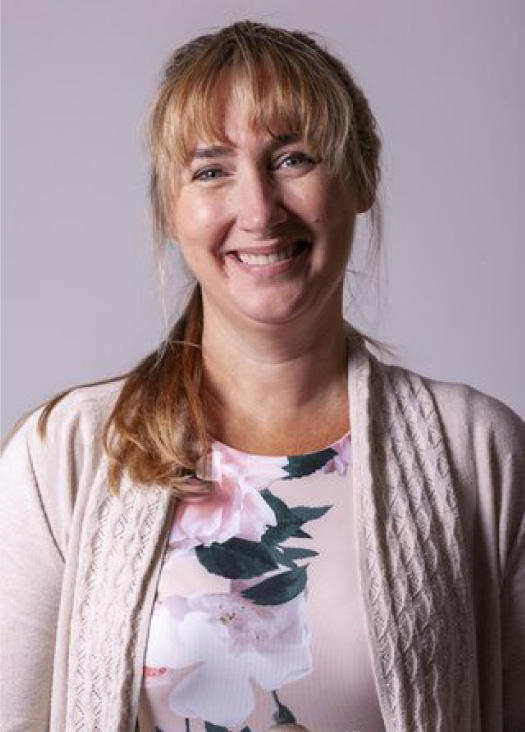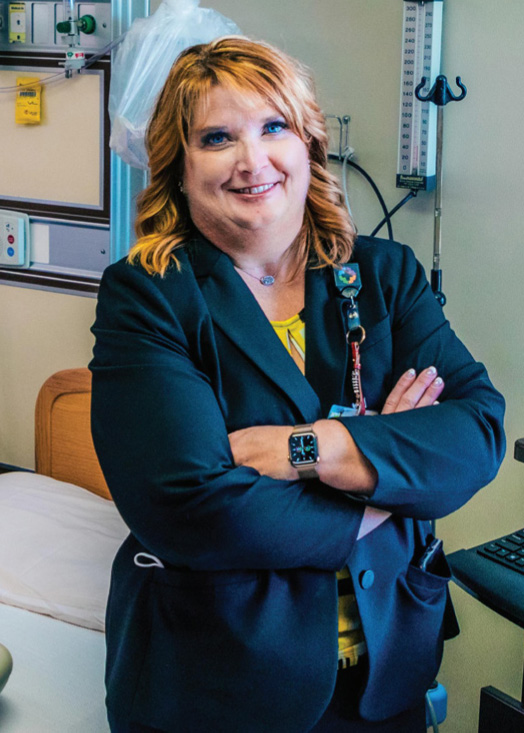Unique public health program reaches rural students
 Lisa RantzVolcanic mountains, craggy seaside cliffs, and miles of sandy beaches might not sound like a recipe for health disparities, but Hawaii’s unique geography can make accessing care more difficult for rural residents. Addressing this and other challenges such as hospital closures and workforce shortages is top of mind for Hawaii State Rural Health Association President Lisa Rantz, who knows firsthand that amazing things can happen when rural leaders work together.
Lisa RantzVolcanic mountains, craggy seaside cliffs, and miles of sandy beaches might not sound like a recipe for health disparities, but Hawaii’s unique geography can make accessing care more difficult for rural residents. Addressing this and other challenges such as hospital closures and workforce shortages is top of mind for Hawaii State Rural Health Association President Lisa Rantz, who knows firsthand that amazing things can happen when rural leaders work together.
“Rural health is expansive – we’re small but mighty,” says Rantz, who has served in her current role since 2012. “Working together is how we’re going to create the economies of scale we need to elevate our voices and get things done.”
To help bolster her advocacy skills and expand her network, Rantz joined the inaugural cohort of the University of California Berkeley’s Rural Health Innovation Program in 2024. This unique 27-month program offers a master’s in public health curriculum tailored specifically to rural America. Coursework is offered online to scholars who live and work in rural communities, allowing them to stay in their current jobs while earning their degree.
Most notably, students accepted to the Rural Health Innovation Program have all tuition and costs covered by the Barr-Campbell Family Foundation, including a one-year NRHA membership. Spearheaded by nationally known rural health innovator and expert Lynn Barr, the program grew out of Barr’s desire to give more rural health professionals the same kind of lifechanging experience she had as an MPH student at Berkeley in 2010.
"Working together is how we’re going to create the economies of scale we need to elevate our voices and get things done." – Lisa Rantz |
“She found the degree transformational, so she fully believed that this would unlock potential for so many people to be impactful at a higher and larger scale,” says Kimberly MacPherson, UC Berkeley School of Public Health faculty program director. “It’s her hope that a lot of these people will lean in and push for the change that’s necessary on reimbursement and other issues.”
 Jenny NiblockBarr initially funded 100 scholarships, aiming for Berkeley to award 25 per year – but the demand for a rural-specific MPH track was overwhelming. In 2024, the Rural Health Innovation Program admitted its first cohort of 47 people, nine of whom were also named Rural Health Policy Fellows. This elite group attended NRHA’s Rural Health Policy Institute in Washington, D.C., in February, giving them additional advocacy training and the opportunity to meet with key national health care leaders.
Jenny NiblockBarr initially funded 100 scholarships, aiming for Berkeley to award 25 per year – but the demand for a rural-specific MPH track was overwhelming. In 2024, the Rural Health Innovation Program admitted its first cohort of 47 people, nine of whom were also named Rural Health Policy Fellows. This elite group attended NRHA’s Rural Health Policy Institute in Washington, D.C., in February, giving them additional advocacy training and the opportunity to meet with key national health care leaders.
For Jenny Niblock, chief clinical officer at Citizens Health in Colby, Kan., attending NRHA’s Policy Institute gave her advocacy and communications tools she has continued to use long after returning home. Like Rantz, Niblock is one of Berkeley’s inaugural Rural Health Policy Fellows, having started the MPH program last spring.
“I enjoyed the diversity of the speakers at Policy Institute and learning what is going on in Washington,” Niblock says. “Rural health is so different in the public health space. We know what our issues are and oftentimes can solve them on our own, but we lack the resources so we must be very creative. NRHA teaches you how to talk not just to the legislators but the agencies that affect public health, so we know who to contact when we get home.”
"NRHA teaches you how to talk not just to the legislators but the agencies that affect public health, so we know who to contact when we get home." – Jenny Niblock |
In line with NRHA’s ethos, the Berkeley program highlights storytelling as a key component of successful rural health advocacy. To help students gain experience turning data into a compelling narrative, part of the MPH program involves interviewing constituents to understand financial and access barriers people might face. According to MacPherson, understanding and communicating the human element of rural health challenges is key to affecting meaningful policy change.
“You need to humanize the data, because people can tune the data out,” she says. “Data is inherently aggregate, whereas a story is personal. For people who don’t live or work in a rural area or have that kind of exposure, stories bring these experiences to life.”
"For people who don’t live or work in a rural area or have that kind of exposure, stories bring these experiences to life." – Kimberly MacPherson |
As rural health professionals like Rantz and Niblock continue to navigate a challenging and ever-changing health care landscape, they are grateful for the network they’ve built through Berkeley and NRHA that allows them to gain access to ideas, resources, and relationships.
“If you’ve seen one rural area you’ve seen one rural area – they’re all unique,” Niblock says. “It is helpful to hear how they’re managing rural public health in different parts of the nation.”
"If you’ve seen one rural area you’ve seen one rural area – they’re all unique." – Jenny Niblock |
“Berkeley has helped me figure out how to make public health work in a rural state,” Rantz adds. “There are population health deficiencies everywhere, and they are very different in urban and rural. The best part of NRHA is the friendships – we’re all in the same boat. We can share ideas and uplift one another."
Apply to become a Berkeley Rural Public Health Scholar
Public health providers in rural areas face very different challenges than those in urban areas. Yet most public health master’s programs lack programming focused specifically on rural public health.
This is why Berkeley Public Health Online has launched the Rural Health Innovation Program.
Rural Health Scholars will study alongside a larger cohort of public health masters students across disciplines as well as a more intimate cohort that is equipped with specialized rural health curricula.
In addition to program fees and travel expenses, scholars receive an NRHA membership. A select number of scholars also attend NRHA’s Rural Health Policy Institute in Washington, D.C.
